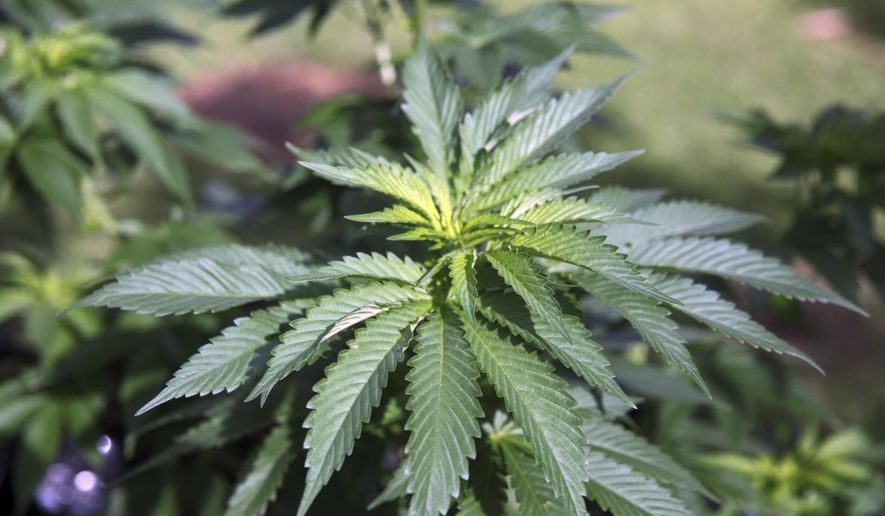District officials will revive efforts to legalize and regulate recreational marijuana sales within D.C., Mayor Muriel Bowser announced in the wake of Tuesday’s midterm races resulting in Republicans losing control over Congress.
“We will prepare a tax and regulate scheme to present to the Council at the beginning of the year,” Ms. Bowser, a Democrat, said at a press conference Wednesday.
D.C. voted to legalize recreational marijuana in Nov. 2014, and laws took effect in Feb. 2015 allowing adults to use, have, give and grow small amounts. Retail marijuana sales are prohibited, however, and the Republican-controlled U.S. House of Representatives has thwarted previous efforts to implement a system for taxing and selling the plant on account of Congress having final approval on local law.
Democrats are poised to take control of the House in January 2019 as a result of Tuesday’s midterms, giving D.C. its best chances yet at establishing a formal framework for legal weed sales, complete with congressional approval.
Michigan on Wednesday became the tenth state in the nation to legalize recreational marijuana, and seven of nine with laws in place – Alaska, California, Colorado, Oregon, Massachusetts, Nevada and Washington state – permit adults to purchase retail weed from licensed dispensaries.
Marijuana can be harvested and gifted in D.C. under existing law, and a separate medical program allows qualifying patients to purchase the plant from a handful of local dispensaries. A gray market emerged after the District’s recreational law took effect, however, evidenced by local law enforcement frequently touting operations targeting pop-up markets that claim to be compliant with the capital’s existing policies.
“We have an untenable situation in the District that I believe makes us unsafe,” Ms. Bowser said Wednesday. “As long as we have the ability to possess marijuana, which is our law, we also need the ability to procure marijuana legally, which we don’t have now.”
D.C. has attempted to legalize recreational sales in the past, but previous efforts were halted by Republicans including anti-marijuana rules, or budget “riders,” in annual House appropriations bills.
“Although I have been able to eliminate nearly all anti-D.C. appropriations riders, two remain — prohibitions that keep D.C. from spending its local funds on abortions for low-income women and on recreational marijuana commercialization. I will continue to fight to remove these last riders,” said Eleanor Holmes Norton, D.C.’s nonvoting delegate to Congress.
“We recognize there will still be challenges ahead with a Republican Senate and White House and many new Democratic House members, but the record support we have secured this Congress for D.C. statehood and home rule should enable us to secure more equal rights and treatment for D.C. residents in the upcoming Congress,” said Ms. Norton, a Democrat reelected Tuesday.
Marijuana is illegal under federal law, but the Obama administration advised the Justice Department against prosecuting related cases in states where the plant is permitted for recreational or medical purposes. President Trump’s administration rescinded that policy earlier this year, but prosecutors have refrained so far from intervening in any of the 31 states that currently allow the plant.
Voters in Utah and Missouri voted Tuesday to legalize medical marijuana, meanwhile, bringing the total number of states with similar laws in place soon up to 33.
• Andrew Blake can be reached at ablake@washingtontimes.com.




Please read our comment policy before commenting.